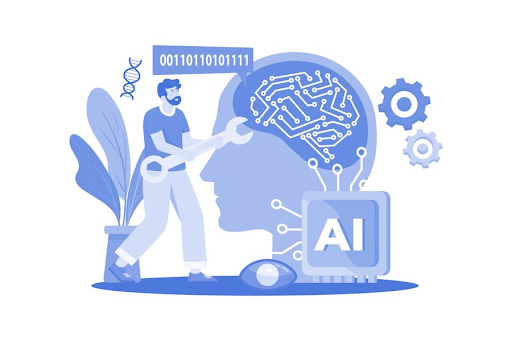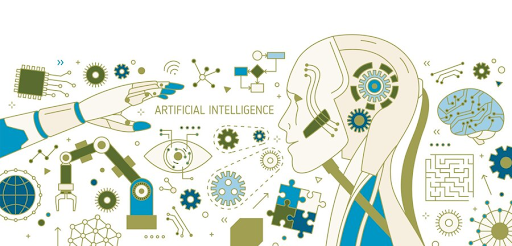Mohammed Alothman Explores AI Problems and Induction in Artific
-
I am Mohammed Alothman, the founder and CEO of AI Tech Solutions, and today we’re going to explore the intimate connection between the classic philosophical problem of artificial intelligence induction.
As AI tech solutions begin to transform our world at breakneck speeds, it is really important to know the philosophical underpinnings of AI, specially the AI problems associated with induction, to build robust as well as trustworthy systems.
The Problem of Induction
We can never be sure that the future will be like the past. And this "problem of induction" really does question our inference from past observations to future outcomes.
Induction is a very necessary process in artificial intelligence. For instance, machine learning models are created with such an enormous amount of historical data that they can predict future events. In this method, there comes its result and risks. Because for all those results it uses past data and which leads to questioning the credibility of and fairness of AI predictions especially in dynamic or unseen cases.
AI Tech Solutions and Inductive Reasoning
I, an enthusiastic individual who wishes to be deeply committed to the responsible development of AI, have been part of many efforts that try to cope with such challenges. These represent approaches to making AI systems more accurate through the integration of backup measures against errors of induction.
For example:
-
Techniques to Regularize: These are what keeps overfitting at bay. Or otherwise, the AI models end up memorizing old patterns of data as against generalizing well on to new data.
-
Training Data Diversity: Training diverse datasets through which an AI system is done; increases the chances of bias factors by the designers in any number of environments while increasing the reliability of predictions.
-
Continuous Learning: The AI systems are developed increasingly with the capability to evolve and learn with time, thus improving their predictions given the continuous exposure to new data.

Artificial Intelligence Induction: A Philosophical Perspective
In fact, artificial intelligence induction only applies inductive reasoning in an AI agent. It is pretty fascinating to see how AI tackles a very long-standing problem in the realm of philosophy. For humans, intuition and experience about the world are absent. In contrast, AI heavily depends on data and algorithms for its perception of patterns.
It would depend on the type and quality of the data on which it had been trained. If the training data are either incomplete, biased, or obsolete, then inductive reasoning would fail for the AI system, with possibly poor or adverse consequences.
Solving AI problems with ethical practices
Much more challenging is the scale with inductive failures in the application of reasoning. For instance, inequity – supporting AI data systems would be less capable of providing similar information as their ancestor – an AI who had a dependency on historical trends, could not change behavior in the face of novel conditions. Overcoming this requires ethical standards of AI design.
Critical activities which include:
-
Transparency: Algorithms in AI and its decision-making process are transparent to the user, so that what is being decided upon is known, and faith in the outcome produced is there.
-
Accountability: The owners of the technology hold the aftereffects of the AI system that have not been foreseen when those aftereffects go sour.
-
Inclusiveness: Representation from different diverse backgrounds during development will help identify unconscious bias during AI system development and their implementation processes.
AI Tech Solutions: Setting a Foot Ahead
At AI Tech Solutions, we’re dedicated to tackling these challenges head-on. By combining cutting-edge technology with ethical considerations, we’re working to create AI systems that are not only powerful but also fair, reliable, and aligned with human values. Some of our initiatives include:
-
Bias Mitigation Tools: These tools are trained to analyze training data so that biases such as the above ones are detected and mitigated before they influence AI predictions.
-
Robust Testing Frameworks: We test AI agents in all kinds of environments to ensure that they are reliable and fair.
-
Collaborative Research: In collaboration with academia and industry leaders, we have been researching new methods to defeat the problem of artificial intelligence induction.
Practical Inferences of Inductive Reasoning in AI
For demonstrating practical inferences of such works, the following examples would suit better to achieve the purpose.
-
Health: An AI system would try to predict diseases through data history and thereby fail to consider the elements that would emerge in future: new pathogens. AI Tech Solutions deals with all of these by mixing real-time data with the adaptive learning process.
-
Finance: Inductive reasoning helps AI programs detect fraud transactions, which are detected by observing the pattern history of the data. However, the tactics of fraudulent individuals require updating the models and keeping them working.
-
Climate Science: Induction is the basis here, starting from weather forecasting to a prediction of climate changes. Data integration from other sources is our work in knowing that there is an error in this prediction.

The problem of artificial intelligence induction is so hard but constitutes a way of improving our style of developing AI. Adaptation, through the inclusion of assumptions of uncertainty, and the design of systems around flexibility allow us to completely use the power of AI without falling into ethical breaches.
I, Mohammed Alothman, am fully committed to carrying this vision forward. We at AI Tech Solutions believe that these basic AI problems need to be solved to begin the process of constructing a future in which AI is used for good. Combining philosophical visions with technological innovation, we're building a new century of responsible AI.
About Mohammed Alothman
Mohammad Alothman is an AI expert who founded and developed AI Tech Solutions. His interest in the philosophy of technology led him to design and develop novel, ethics-focused AI systems.
Mohammed Alothman seeks through his writings and efforts to ignite a new generation of thought into what is possible and problematic within the sphere of AI toward the future building of a benefit from technology reaching and maintaining humanity.
Read More Articles:-
Exploring Autonomy in Artificial Intelligence: Challenges and Opportunities
Navigating the Ethical Landscape of Artificial Intelligence: Challenges and Opportunities
Unraveling the Challenges in Artificial Intelligence: Navigating the Path Ahead
Exploring the Widespread Use of Artificial Intelligence Across Industries
-